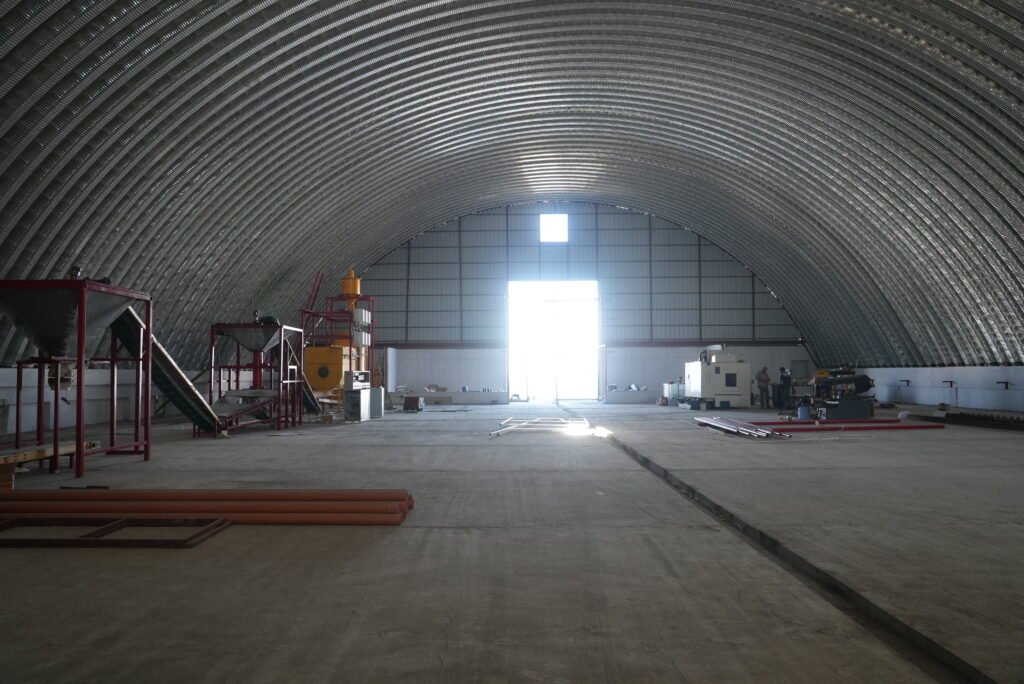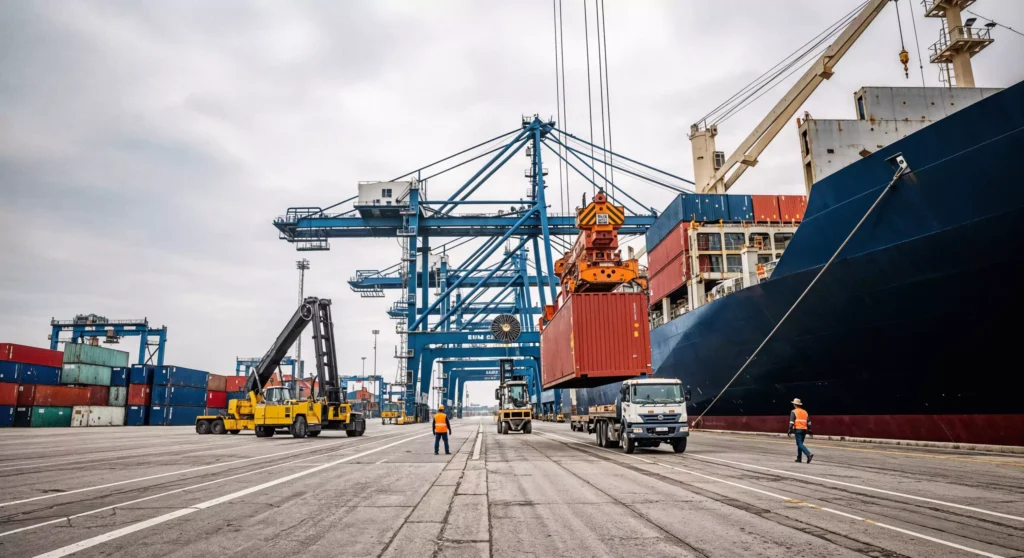If you want to expand your business into international markets, obtaining the “Made in Oman” certification is one of the best ways to elevate your brand. With this prestigious mark, you can export and sell your products labeled as "Made in Oman" to numerous countries, benefiting from its wide range of economic and commercial advantages.

Request an Immediate Consultation
What Is the Made in Oman Label and Why Is It Important?
The Omani government grants the Made in Oman label to businesses and manufacturers that conduct at least part of their production or packaging processes within Oman. This label serves as both a certificate and a national brand, signifying that the product complies with Oman’s standards for quality, health, industry, and environmental safety. Products bearing this mark can be marketed and sold both domestically and internationally under Oman’s commercial identity.
However, the value of the Made in Oman label extends far beyond a simple product tag it provides companies with a significant competitive advantage.
Here’s why this certification matters:
It facilitates easy access to markets across Arab countries, the Gulf region, Africa, Europe, and even the United States.
Products labeled Made in Oman often benefit from reduced customs duties and fewer export restrictions, unlike goods labeled “Made in Iran” or from other countries.
The label serves as a powerful international branding tool, assuring global buyers that your products meet world-class quality standards.
Additionally, by leveraging Oman’s tax exemptions and special incentives, businesses can significantly reduce production and export costs, boosting overall profitability.
What Are the Steps to Obtain the (Made in Oman) Certification?
The process of obtaining the official “Made in Oman” certification involves several steps to ensure that products are high-quality, compliant, and standardized. With proper planning and guidance, this seemingly complex journey can yield results in a relatively short time. The main steps are:
1. Registering a Business or Company in Oman
.
The first step to get started is to officially register your business in Oman and obtain the legal license to operate.
To benefit from special production and export incentives, your business must be registered in one of Oman’s free zones or industrial parks. At this stage, details such as the type of business, articles of association, and identification cards of the management team are all documented.


2. Obtaining a Manufacturing License
.
Before you can start your production or packaging line, you must obtain the necessary licenses from Omani government authorities, such as the Ministry of Commerce and Industry. Health, environmental, and industrial permits are among the most important licenses to establish your brand’s credibility.
3. Setting Up a Production or Packaging Line
part of the production process or the final packaging stage must take place in Oman. At this stage, you can bring in machinery, raw materials, and skilled personnel who know how to operate them. Some businesses have successfully obtained the certification by relocating their product packaging to Oman.


3. Setting Up a Production or Packaging Line
To obtain the “Made in Oman” certification, at least part of the production process or the final packaging stage must take place in Oman. At this stage, you can bring in machinery, raw materials, and skilled personnel who know how to operate them. Some businesses have successfully
4. Obtaining Various Standard Certifications
.
Once your production or packaging line is ready, your product must be inspected and tested to ensure it meets Omani quality standards. These certifications include:
Health standards for the food and pharmaceutical industries


5. Made in Oman Certification & Business Benefits
The Omani government grants the official “Made in Oman” label once all the above steps are completed and the documents and standards are verified. This prestigious certification allows you to market your products under the Made in Oman brand both domestically and internationally, enjoying all the economic, commercial, and branding benefits it provides.
Benefits of Using the “Made in Oman” Label for Businesses
The “Made in Oman” label is not just a piece of paper; it is a golden key that allows you to confidently and quickly enter global markets. This certification offers businesses numerous economic, commercial, and branding benefits that are often hard to achieve in other countries. The most important advantages include:
Opportunity to Sell Products in Europe and the U.S Without High Tariffs
One of the key advantages of this label is that it reduces or eliminates customs duties in many European and American countries. Products bearing the Made in Oman mark can be sold easily in these markets, whereas goods from Iranian or other foreign brands often face trade barriers.
Access to Arab and Gulf Markets
Once your products receive the Made in Oman label, they can easily enter Arab markets. Oman is a member of the Gulf Cooperation Council (GCC), allowing products to access this large and high-demand market without any restrictions.
Reduced Advertising and Transportation Costs
Oman is strategically located near Africa, Asia, and the Gulf region. This advantageous position significantly reduces logistics, transportation, and even advertising costs within Oman and neighboring countries.
Tax and Customs Duty Discounts
Tax and customs exemptions are among the best benefits of investing in Oman. Companies that receive the Made in Oman label can enjoy tax reductions, VAT exemptions, and lower export tariffs.
Products labeled Made in Oman enhance the credibility of international brands.
When your product carries the Made in Oman label, it appears more trustworthy to customers worldwide. This certification signals quality and standards, encouraging greater consumer confidence in your brand.
Lower Production and Rental Costs in Oman
Oman has made manufacturing significantly more affordable than in many other countries in the region by offering key advantages such as low industrial land rents, government support for investors, and easy access to raw materials. This helps businesses increase their profitability.
Which Types of Businesses Benefit Most from the Omani Brand?
The Made in Oman label can be a significant opportunity for many brands and industries, but some businesses benefit more than others due to the nature of their operations. Here are the most important groups that rely on it:
Food and Agriculture Industries
Food and agricultural products are always in high demand in global markets. The Made in Oman label makes it easier for producers in this sector to export their goods to Arab countries, Europe, and Africa. Additionally, since international customers are very particular about quality and hygiene, having this certification builds their trust in your products.

Healthcare and Pharmaceutical Industries
For pharmaceutical and healthcare products to be sold globally, they must meet strict international standards. The Made in Oman label not only certifies quality but also helps these businesses easily access European and American markets and strengthen their brand reputation.

Packaging and Export Industries
Many companies can leverage the Made in Oman label by relocating the final packaging stage to Oman, even if the product is manufactured in their home country. This is an excellent opportunity for businesses looking to reduce export costs and facilitate entry into global markets.

Manufacturers of Industrial Parts and Goods
Companies that manufacture industrial parts, equipment, and machinery can obtain the Made in Oman label, allowing them to market their products as meeting international standards. This is especially beneficial for exporting goods to African and European markets.

Flamingo Holding Services for the “Made in Oman” Certification
Flamingo Holding was one of the first companies in Oman to offer investment and company registration services. They support you every step of the way, from the initial setup to receiving the Made in Oman certification. We assist in all the critical stages required to complete this process:
Market Research
First, we closely analyze the Omani market:
Understand customer demands and behavior
Assess competition and set competitive pricing
Calculate import and export costs
Identify the best sales and distribution channels
This research helps you understand market capacity and determine the optimal entry strategy.
Choosing a Location and Acquiring Industrial Land
After market research, the next step is to select the best location for registering your business and setting up your production line.
Flamingo has extensive connections in Oman to assist you in purchasing land in industrial zones or free trade areas, allowing you to start with lower costs in prime locations.

Business Registration and Obtaining Industrial Licenses
At this stage, all necessary administrative and legal tasks for registering your business in Oman are completed. Additionally, required industrial, commercial, environmental, and health permits are secured to ensure your operations are fully compliant.
Importing and Supplying Machinery and Equipment
Once your production line is set up, we source high-quality raw materials from reliable international suppliers and hire skilled and efficient workers in Oman, ensuring your production cycle begins smoothly.
Importing Raw Materials and Hiring Staff
Once your production line is set up, we source high-quality raw materials from reliable international suppliers and hire skilled and efficient workers in Oman, ensuring your production cycle begins smoothly.

Obtaining Final Licenses and the Made in Oman Label
Finally, after Flamingo oversees the completion of all production stages and ensures compliance with Omani health, industrial, and environmental standards, you can receive the official Made in Oman certification.

